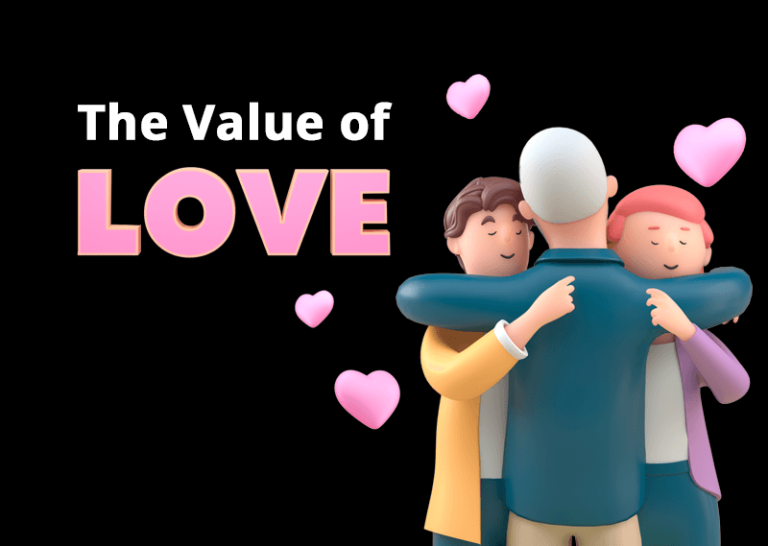
Forgiveness stands as one of Christianity’s most profound and challenging teachings. Throughout Scripture, from Genesis to Revelation, God’s Word consistently calls believers to extend grace to those who have wronged them. This divine principle shapes not only our relationship with God but also transforms how we interact with others and view ourselves.
The Bible presents forgiveness not as a suggestion but as a commandment central to faith. When we examine bible scriptures on forgiveness, we discover that this practice goes far beyond simply “letting things go.” Biblical forgiveness involves a deliberate choice to release resentment, seek reconciliation where possible, and trust God with the outcomes of our relationships.
Understanding and applying biblical forgiveness can revolutionize your spiritual journey, emotional health, and personal relationships. This exploration of Scripture will guide you through God’s heart for forgiveness and provide practical wisdom for embracing this life-changing principle.
What Does the Bible Really Mean by Forgiveness?

Biblical forgiveness differs significantly from popular culture’s understanding of the concept. The Hebrew word “salach” and the Greek word “aphiemi” both convey the idea of releasing, sending away, or canceling a debt. This doesn’t mean pretending the offense never happened or that consequences disappear overnight.
Scripture teaches that forgiveness involves three key elements. First, it requires releasing the right to revenge or retaliation to God. Romans 12:19 reminds us, “Do not take revenge, my dear friends, but leave room for God’s wrath, for it is written: ‘It is mine to avenge; I will repay,’ says the Lord.”
Second, forgiveness means choosing to treat the offender with kindness rather than harboring bitterness. This doesn’t require immediate trust restoration, but it does call for a heart posture that seeks the other person’s good.
Third, biblical forgiveness acknowledges that we forgive because God first forgave us. Ephesians 4:32 instructs believers to “be kind and compassionate to one another, forgiving each other, just as in Christ God forgave you.”
Old Testament Foundations of Forgiveness
The Hebrew Scriptures lay crucial groundwork for understanding God’s heart toward forgiveness. These ancient texts reveal both divine mercy and human capacity for grace.
God’s Forgiving Nature
Exodus 34:6-7 provides one of the most comprehensive descriptions of God’s character: “The Lord, the Lord, the compassionate and gracious God, slow to anger, abounding in love and faithfulness, maintaining love to thousands, and forgiving wickedness, rebellion and sin.”
Psalm 103:12 beautifully illustrates the completeness of divine forgiveness: “As far as the east is from the west, so far has he removed our transgressions from us.” This passage assures believers that God’s forgiveness is thorough and permanent.

Joseph’s Revolutionary Example

The story of Joseph forgiving his brothers represents one of Scripture’s most powerful examples of human forgiveness. After years of slavery and imprisonment due to his brothers’ betrayal, Joseph had every human reason to seek revenge when he gained power in Egypt.
Instead, Genesis 50:20 records his remarkable response: “You intended to harm me, but God intended it for good to accomplish what is now being done, the saving of many lives.” Joseph chose to see God’s sovereignty in his suffering and extend grace to those who wronged him.
This narrative demonstrates that forgiveness doesn’t deny the reality of hurt or minimize genuine injustice. Joseph acknowledged his brothers’ intent to harm while simultaneously choosing to trust God’s greater purposes.
Other Old Testament Teachings
Proverbs 17:9 teaches, “Whoever would foster love covers over an offense, but whoever repeats the matter separates close friends.” This wisdom literature emphasizes forgiveness as a choice that promotes relationships rather than destroys them.
Leviticus 19:18 commands, “Do not seek revenge or bear a grudge against anyone among your people, but love your neighbor as yourself.” This instruction predates Jesus’ teachings and shows forgiveness as a consistent biblical theme.
Jesus’ Revolutionary Teachings on Forgiveness
The New Testament elevates forgiveness to unprecedented heights through Jesus’ teachings and example. Christ’s instructions on forgiveness challenge human nature while offering supernatural grace to accomplish what seems impossible.
The Lord’s Prayer
Matthew 6:12 includes forgiveness as a daily necessity: “And forgive us our debts, as we also have forgiven our debtors.” This petition links divine forgiveness with human forgiveness, suggesting they’re inseparably connected.
The following verses expand this connection: “For if you forgive other people when they sin against you, your heavenly Father will also forgive you. But if you do not forgive others their sins, your Father will not forgive your sins” (Matthew 6:14-15).

Seventy Times Seven

When Peter asked if forgiving seven times was sufficient, Jesus responded in Matthew 18:22, “Not seven times, but seventy-seven times.” Some translations render this as “seventy times seven,” emphasizing unlimited forgiveness rather than mathematical calculations.
This teaching doesn’t encourage people to remain in harmful situations, but it does call believers to maintain hearts ready to forgive whenever genuine repentance occurs.
Forgiveness from the Cross
Luke 23:34 records Jesus’ prayer while being crucified: “Father, forgive them, for they do not know what they are doing.” This demonstrates forgiveness extended even to those actively causing harm, showing divine love that transcends human understanding.
The Parable of the Unmerciful Servant
Matthew 18:21-35 tells of a servant forgiven an enormous debt who then refuses to forgive a fellow servant’s small debt. The master’s response illustrates that those who have received God’s massive forgiveness must extend grace to others.
This parable reveals that unforgiveness after receiving divine mercy contradicts the gospel’s fundamental message and damages our relationship with God.
The Prodigal Son
Luke 15:11-32 portrays a father’s unconditional forgiveness toward a rebellious son. The father doesn’t wait for a full apology or proof of change before extending welcome and restoration.
This story demonstrates God’s heart toward repentant sinners and models how believers should respond to those seeking reconciliation.

Putting Forgiveness Into Daily Practice
Understanding biblical principles of forgiveness is just the beginning. Implementing these truths in real-life situations requires intentional steps and dependence on God’s strength.
Acknowledge the Hurt

Authentic forgiveness begins with honest assessment of the damage caused. Minimizing genuine pain or pretending offense didn’t occur isn’t biblical forgiveness but emotional suppression.
Psalm 73:21-22 shows the psalmist honestly acknowledging his bitter feelings before God: “When my heart was grieved and my spirit embittered, I was senseless and ignorant; I was a brute beast before you.”
Choose to Forgive
Forgiveness starts as a decision of the will, not necessarily a feeling. You can choose to forgive even while still processing emotions related to the offense.
Philippians 4:13 provides strength for difficult obedience: “I can do all this through him who gives me strength.”
Release the Right to Revenge
Deliberately surrender desires for retaliation or punishment to God. This doesn’t mean avoiding appropriate legal or relational boundaries, but it does mean trusting God with ultimate justice.
First Peter 2:23 describes Jesus’ example: “When they hurled their insults at him, he did not retaliate; when he suffered, he made no threats. Instead, he entrusted himself to him who judges justly.”

Seek Reconciliation When Appropriate

Matthew 18:15 outlines steps for addressing offenses directly: “If your brother or sister sins, go and point out their fault, just between the two of you. If they listen to you, you have won them over.”
However, reconciliation requires repentance from the offender and may not always be possible or safe.
.
Pray for Those Who Hurt You
Matthew 5:44 instructs believers to “pray for those who persecute you.” Prayer for offenders helps transform your heart and invites God’s work in their lives.
This practice often proves more challenging than expected but creates space for genuine healing and character development.
The Life-Changing Benefits of Biblical Forgiveness
Choosing forgiveness according to Scripture produces remarkable benefits for both forgiver and recipient. These advantages extend beyond spiritual growth into emotional, physical, and relational health.
Spiritual Benefits
Forgiveness removes barriers between believers and God. Unforgiveness creates spiritual stagnation, while extending grace opens channels for divine blessing and growth.
James 1:17 reminds us that “every good and perfect gift is from above, coming down from the Father of the heavenly lights.” Forgiveness positions us to receive God’s ongoing gifts.

Emotional Freedom
Harboring resentment creates emotional prison cells that trap the unforgiving person more than the offender. Forgiveness unlocks these prisons and restores emotional health.
Isaiah 61:3 promises that God gives “a crown of beauty instead of ashes, the oil of joy instead of mourning, and a garment of praise instead of a spirit of despair.”
Physical Health Benefits
Medical research consistently shows connections between unforgiveness and physical ailments including elevated blood pressure, compromised immune function, and increased stress hormones.
Proverbs 14:30 observes that “a heart at peace gives life to the body, but envy rots the bones.”
Restored Relationships

When both parties embrace biblical forgiveness, relationships can emerge stronger than before the offense occurred. This doesn’t happen automatically but requires commitment from everyone involved.
Colossians 3:13 encourages believers to “bear with each other and forgive one another if any of you has a grievance against someone. Forgive as the Lord forgave you.”
Witness to Others
Extending forgiveness in difficult circumstances provides powerful testimony to non-believers about Christianity’s transformative power.
John 13:35 states, “By this everyone will know that you are my disciples, if you love one another.”
Your Journey Toward Radical Grace
Biblical forgiveness represents one of faith’s greatest challenges and greatest rewards. Scripture consistently calls believers to extend the same grace they’ve received from God, creating cycles of healing that ripple through families, communities, and generations.
Remember that forgiveness is both a moment of decision and a lifelong process. Some offenses require repeated choices to forgive as memories resurface or consequences unfold. God’s strength proves sufficient for each new challenge.
The bible scriptures on forgiveness don’t promise easy paths but they do guarantee divine help for those willing to obey. As you apply these biblical principles, you’ll discover that forgiveness frees you more than anyone else while reflecting God’s character to a watching world.
Ask God to reveal any areas of unforgiveness in your heart. Allow His Word to guide your responses, and trust His timing for healing and reconciliation. The journey toward biblical forgiveness will transform not only your relationships but your entire spiritual life.

MORE ON LIVING SCRIPTURES+
Bible Scriptures on Forgiveness
Are you looking for a deeper, more meaningful way to bring scripture to life for your family? With Living Scriptures+, you can stream faith-filled movies, animated Bible stories, and inspiring original series that teach timeless lessons — including powerful teachings on Forgivness found throughout the Bible. Whether you’re a parent trying to teach Christlike values to your kids, or someone seeking to grow in your personal faith journey, Living Scriptures+ makes it easy and enjoyable to explore God’s word right from your home.
Our latest blog, Bible Scriptures on Forgiveness, dives into what it truly means to Forgive — and the best part? Many of the stories we reference are brought to life in beautifully animated films available only on Living Scriptures+. From the quiet strength of Moses to the servant-hearted example of Jesus, you’ll find these examples not just in written words, but in heartfelt storytelling that inspires action.
Don’t just read about Forgiveness — experience it. Start your free trial of Living Scriptures+ today and explore a growing library of over 1,000 titles designed to uplift, teach, and strengthen families. Whether you’re gathering for a Sunday movie night or looking for a quiet moment of reflection, Living Scriptures+ will help bring the Bible’s most important lessons — like Forgiveness — into everyday life.




